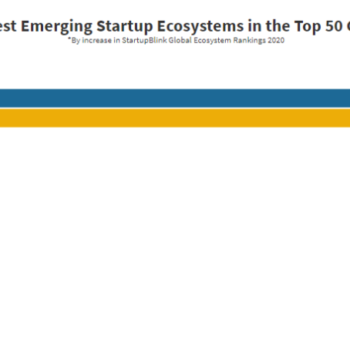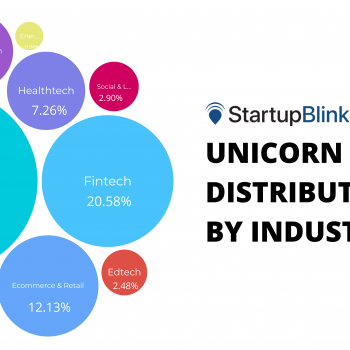An introduction to India’s Silicon Valley
The Bangalore Startup Ecosystem is often referred to as India’s Silicon Valley and is fast becoming the hub of highly valued and successful startups. Sample this: E-commerce giant Flipkart founded in 2007, is now valued at $12.5 billion, while its rival Snapdeal, is reportedly worth $5 billion.
The city has a number of factors going for it, with the most prominent being the availability of highly skilled talent in the IT sector. It accounts for about 35 percent of the country’s one million IT professionals. In StartupBlink’s 2019 report, Bangalore ranked 1st in India and 11th globally.
Most Successful Bangalore Startups
The Indian startup scene has progressed by leaps and bounds and Bangalore has been a leader in bringing about this transformation. Some of the startups that played an important role in various different sectors are given below:
- RedBus (@redBus_in): Started by Phanindra Sama, Charan Padmaraju and Sudhkar Pasupunuri in 2008, redbus.in is a bus ticketing service that sells over a million tickets per month. It has swiftly changed the face of an unorganised bus ticketing market in India. The company was acquired by the Ibibo Group in June 2013 for an estimated Rs. 700 crore, making it the largest strategic overseas acquisition.
- CommonFloor (@commonfloor): Founded in 2007 by computer science graduates from IIT Roorkee and JSSATE, CommonFloor is a property search portal. With more than 100,000 projects, 5,00,000 property listings, the website is one of the fastest growing portals in India. It received funding from Google Capital in January 2015.
- ZipDial (@zipdial): A mobile marketing and communications firm, Zipdial was founded Valerie Wagoner in 2010. The platform works on a “missed call” system, where users call a toll-free number in order to connect with a particular service or product and hang up. The company then calls them back to offer product information. It has proved effective in India, a country with users prefer using SMS and calls as opposed to the internet. ZipDial was acquired by Twitter in 2015 for a reported 30 million dollars.
- InMobi (@InMobi): Founded by Naveen Tiwari in 2007, InMobi is a mobile-based ad network. InMobi is redefining customer engagement through mobile and serves billions of ads in a day. It has 759 million users across 150+ countries. What’s more, its innovative technology has won it a place in MIT Technology Review’s 50 most disruptive companies of 2013. The company is backed by SoftBank and Kleiner Perkins Caufield & Byers.
- TaxiforSure (@taxiforsure): It is an online cab renting platform that was started by IIM-A graduates Radhakrishna and Raghunandan G. in 2011. The company started its services in Bangalore, and gradually expanded operations to Chennai, Delhi, Ahmedabad, Hyderabad and many other cities. The company has been acquired by another Bangalore-based startup Ola Cabs in March 2015, for a reported $200 million.
- Flipkart (@Flipkart): Perhaps the most well-known Indian startup, ecommerce giant Flipkart has been giving Amazon India a run for its money. It was started by Sachin Bansal and Binny Bansal in Bangalore. Both founders had worked for Amazon India previously. The company’s cash on the delivery model has been adopted by quite a few ecommerce retailers. The company reported gross merchandise value in 2013-14 was pegged at $1 billion. It is backed by Accel Partners, Naspers and Tiger Global, among others.
Strengths of Bangalore for start-ups
Krishnan Ganesh (@ganeshk03), a serial entrepreneur and founder of GrowthStory.in, believes that Bangalore has the right mix mentors, advisors, VC firms and organisations like The Indus Entrepreneurs and National Entrepreneurship Network, that has led to the vast growth of its startup ecosystem.
Bangalore also has a young and vibrant startup brigade that is not afraid of taking risks and trying ideas that have a huge impact. It is also the hub of India’s IT professionals, thus it is easy for startups to acquire top-notch technical talent.
With several startup officers, venture funds, angel investors and co-working spaces, it is easy for Bangalore startups to get feedback from their peers, hire talent and find mentors in other successful companies.
Ganesh also states that the presence of tech companies such as Wipro, Infosys, and MNCs such as Texas Instruments and Intel, led to the availability of talent and experience for launching new startups.
Weaknesses of Bangalore for start-ups
Ganesh believes that high costs and unrealistic expectations from entrepreneurs and employees seeking start-up jobs are among the major problems of the city. With the vast amount of capital chasing top companies, valuation expectations too have gone through the roof. He also says that attracting top talent is difficult and expensive.
On one hand, while it is easy to get seed funding from friends and relatives and newly emerged angel investors who may get carried away by media hype, it is also a major disadvantage, as they may not be fully aware of the risk implications of such investments.
Institutional capital, on the other hand, says Ganesh is still elusive and concentrated in the hands of a few top startups that are most talked about.
Another factor thwarting the growth of Bangalore startups is restrictive government policies that make it difficult to scale. Bureaucracy and excessive paperwork during IPOs, raising funds and closing, make startups a cumbersome affair.
Biggest players in the Bangalore startup ecosystem
Angel Investors in Bangalore:
- Pallav Nadhani (@pallavn): Pallav Nadhani started his company Fusion Charts in 2001, without any external funding. Today, his company is worth Rs. 47 crores. He has invested in a number of startups including Eduora Technologies, iDubba, Shopo.in, CarSingh and Plivo.
- Ravi Gururaj (@ravigururaj): A serial entrepreneur, Ravi Gururaj has launched 5 ventures and had 2 public exits. As co-founder and chairman of Frictionless Ventures, he invests in and builds software products primarily in the mobile, big data and cloud segments. Some of his investments include Graymatics, Explara, Socialblood.org, Tookitaki and SyncUsUp.
- Phanindra Sama (@phanindrasama): Phanindra Sama learnt about startup funding the hard way, when launching his own startup, redbus.in. He has now turned angel investor and also mentors a number of startups. He invests in startups that are innovative and some of them include ShieldSquare and Venturesity.
Accelerators and Incubators in Bangalore:
- Tlabs (@TLabs): The accelerator operates a four-month-long program with 60+ mentors. So far it has accelerated 36 startups, and over 65% of the companies have raised over $200 K in investments. The accelerator offers $50 K funding for 8% equity as well as free infrastructural support and tech tools.
- 10000 Startups (@NASSCOMStartUps): A NASSCOM initiative, 10000 Startups supports tech startups in the country. An ambitious project, it aims to make a massive impact on 10,000 startups in the next ten years. The initiative is supported by Microsoft, Kotak, Verisign, and Google.
- Microsoft Ventures (@MSFTVentures): It is a global initiative empowering entrepreneurs all over the world. Microsoft Ventures provides startups with a mentor-driven accelerator program and helps them bring their services to customers.
Major Investment firms:
- Growth Story (@ganeshk03): It was founded by Krishna Ganesh and Meena Ganesh, in order to help startups scale rapidly and help generate jobs and make an impact. Some of the startups that Growth Story has funded include Must See India, FlipClass, BigBasket, and AVAGMAH.
- Accel Partners (@Accel): A global venture capital firm, it makes multiple investments in internet technology companies. It has invested in Freshdesk, FabHotels, and Chargebee, among others.
- Sequoia Capital (@sequoia): Sequoia has been very active since the past few years in the Bangalore startup ecosystem. Some of the startups it has invested in include Akosha, Percolate Pocket Gems, Zoomcar India and several others.
- Kalaari Capital (@Kalaari): Kalaari Capital has a strong advisory team in Bangalore and makes investments in tech-oriented companies in India. A few of the 26 companies they have invested in so far include Truweight, Simplilearn, Urban Ladder and 99Games Online Private Limited.
- Helion Ventures (@HelionVC): The venture fund invests in high growth technology companies focused on internet, mobile, education, retail and financial services. Toppr, QuickoLabs and ZapStitch are among their investments.
- Nexus Venture Partners: Investing in early-stage companies in India and Silicon Valley, it has a portfolio of over 50 companies that range across different sectors such as media, technology, consumer-oriented and business services. Among its Indian investments are Bigshoebazaar, Netmagic, MapMyIndia and Snapdeal.
- Qualcomm Ventures (@QualcommVenture): The investment arm of Qualcomm Inc., it has invested in various startups in India, some of which include Birds Eye System, ZopNow, Housing.com and Portea Medical.
Co-working Spaces in Bangalore:
- Jaaga (@jaagarnaut): A community arts and technology space in Bangalore, it provides coworking facilities as well as a meeting space to community service organizations.
- BHiVE Workspace (@BHIVE_Workspace): It prides itself in being Bangalore’s largest workspace, with hybrid workspaces such as office spaces and business centres. They help the startup community by enabling them to co-work, co-create, collaborate and communicate with each other.
Startup Organizations in Bangalore:
- LetsVenture (@letsventurein): An online platform that connects startups and investors, LetsVenture raised $6.5 million on its platform last year, and facilitated 23 deals and 4900+ connections.
- Headstart Network Foundation: It is a network of early-stage startups in India that enables learning, hiring, providing marketing insights and mentoring for startups. Its various initiatives include Headstart Co-founder Search Program, Headstart Startup Saturdays, Headstart Club and Headstart Hackerspace.
Conclusion
Bangalore has a thriving startup ecosystem, bustling with startups, accelerators, investors, coworking spaces and organisations. It is the perfect city to set up shop if one wishes to startup in India!
A big thank you to Krishnan Ganesh (@ganeshk03) for giving us his insight into the ecosystem!







